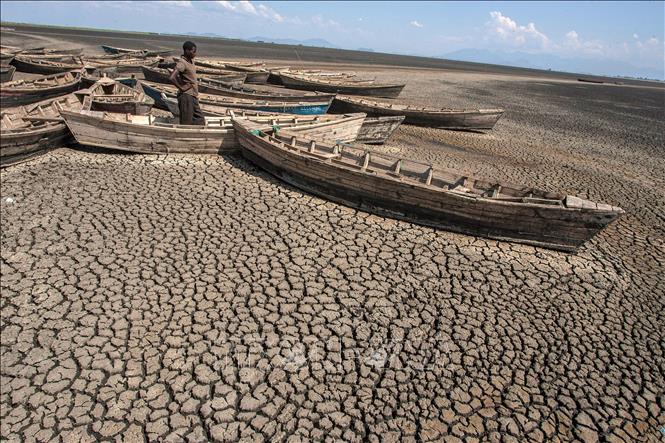
A dry landscape at Lake Chilwa in the Zomba region, eastern Malawi.
Expert Gilpin made this statement in an interview with Ahram Online (Egypt) newspaper in Mauritius on December 29, on the sidelines of the African Economic Conference (AEC 2022). Mr. Gilpin assessed that climate-smart solutions are key for Africa to overcome the severe impacts of climate change, especially in the context of the global economy facing challenges due to the impact of climate change. effects of the COVID-19 pandemic and the Russian-Ukrainian conflict. He added: "Africa accounts for less than 4% of total global greenhouse gas emissions. Although Africa does not contribute much to climate change, it receives the smallest share of total support. global financing for climate action".
The climate finance that has been poured into Africa has not met the commitments of the developed countries and failed to meet the adaptation and mitigation needs of the continent. According to the African Development Bank (AfDB), Africa's share of global climate finance increased by an average of only 3 percentage points between 2010 and 2019, from 23% ($48 billion) to 26% ($73 billion). AfDB stresses the need for more concrete measures to close Africa's annual climate finance gap, amid the resources needed to meet the Nationally Determined Contribution targets. (NDC) of Africa could amount to 118.2-145.5 billion USD per year by 2030.
Concerning how African countries can get the financing they need for climate action amid the current economic hardship, Gilpin says climate smart solutions are a top priority. of the continent to combat the dire threats of climate change. According to Mr. Gilpin, this solution also requires significant investments. He also called for the adoption of a public-private partnership model in climate-related projects in Africa, as well as the expansion of financial support sources to provide the necessary funds to meet the need for action. because of the climate of Africa.